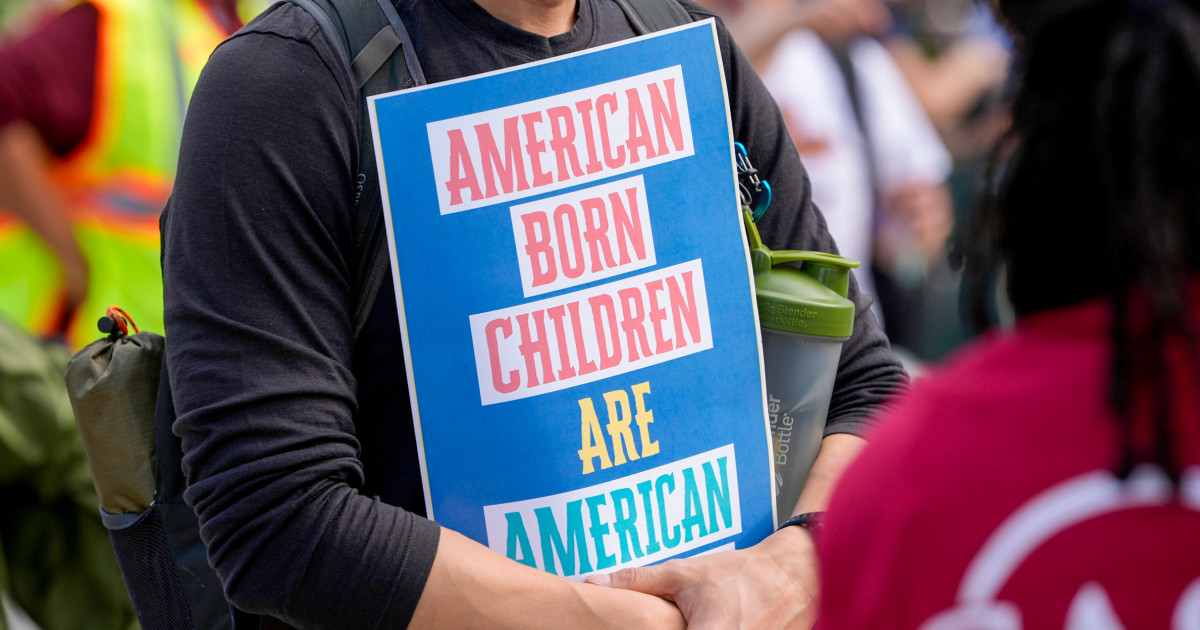Legal Landscape Shifts: A Federal Judge’s Ruling on Birthright Citizenship
A recent federal court ruling has garnered significant attention as it takes a stance against the Trump administration’s controversial bid to alter birthright citizenship for babies born in the United States. This decision by U.S. District Judge Joseph Laplante marks a pivotal moment in the ongoing legal discourse surrounding immigration and civil rights.
Background: The Birthright Citizenship Debate
The foundation of the debate is the principle of birthright citizenship enshrined in the Fourteenth Amendment, which grants citizenship to anyone born on U.S. soil. Under the Trump administration’s proposed changes, this status would be restricted to children whose parents are U.S. citizens or lawful permanent residents. This drastic move would exclude many, including children of visitors, students, and undocumented immigrants, raising fundamental questions about the rights of those born in the U.S.
The Judge’s Ruling
On a Thursday morning in New Hampshire, Judge Laplante not only granted class action status to a lawsuit aimed at safeguarding the citizenship rights of affected newborns but also issued a temporary nationwide block against President Trump’s directive. His ruling represents an early test of how courts will navigate the new legal terrain following a Supreme Court decision which largely curtailed the power of federal judges to issue nationwide injunctions against presidential policies.
Implications of Supreme Court Decisions
The Supreme Court’s recent ruling was seen as a blow to those seeking broad judicial relief from federal policies. It effectively closed the door on federal judges issuing nationwide injunctions—a powerful tool that has been used in immigration cases and other significant legal battles. However, experts like Muzaffar Chishti, a senior fellow at the Migration Policy Institute, suggest that the Supreme Court’s decision simultaneously opened new avenues for litigation. With the mechanisms changing, advocates quickly adapted their strategies, opting for class action lawsuits to challenge the executive order.
Class Action Lawsuit: An Alternative Path
In the aftermath of the Supreme Court ruling, immigrants and their legal representatives shifted their focus to securing class action status as a means to contest the Trump administration’s order. This legal maneuver aims to protect both current and future generations of children who could be affected by the new policy. Judge Laplante’s decision to grant class action status represents a significant lever that could potentially stop the executive order from being enacted.
Key Provisions of the Executive Order
Under the new directive, birthright citizenship would be limited for many children born in the U.S., particularly those whose mothers are in the country temporarily or are unlawfully present. This proposed policy could effectively leave countless children without the citizenship rights to which they would traditionally be entitled, igniting widespread concerns about the implications for families and communities across the nation.
Judicial Perspective on Nationwide Injunctions
In his written order, Judge Laplante acknowledged the complexities of the current legal landscape, stating the necessity of class action as a way to safeguard rights at a national scale. Prior to this ruling, he had been hesitant to issue nationwide injunctions, opting instead for more restrained orders. This shift suggests an evolving perspective on how courts handle matters of significant constitutional impact, especially concerning citizenship rights.
Reactions from Legal Experts
Legal scholars and advocates are closely monitoring this development. Professor Haiyun Damon-Feng, an immigration and constitutional law expert at Cardozo School of Law, emphasized that the ruling validates the class action mechanism, illustrating courts’ willingness to engage with this legal strategy despite recent Supreme Court restrictions. On the other hand, Cody Wofsy, an attorney with the ACLU, expressed optimism that the ruling serves to protect children across the country from what he termed "lawless" government action.
Administration’s Response
The Trump administration has been swift in its response, labeling the ruling as an unlawful circumvention of the Supreme Court’s recent directives. White House spokesperson Harrison Fields condemned the decision, arguing it disrupts the rule of law and undermines the president’s policy agenda. This pushback underscores the contentious and evolving nature of the immigration debate, which is likely to see further legal challenges.
Future Legal Maneuvering
The path ahead remains unclear, as the Trump administration has until the end of the week to appeal Judge Laplante’s ruling. Experts predict that this legal battle will not just revolve around birthright citizenship but will also delve into procedural questions surrounding class action certification, setting the stage for continued litigation on immigration policies.
As this case unfolds, it exemplifies the increasingly intricate relationship between judicial power and executive authority, particularly in immigration matters, promising an engaging legal landscape ahead.


